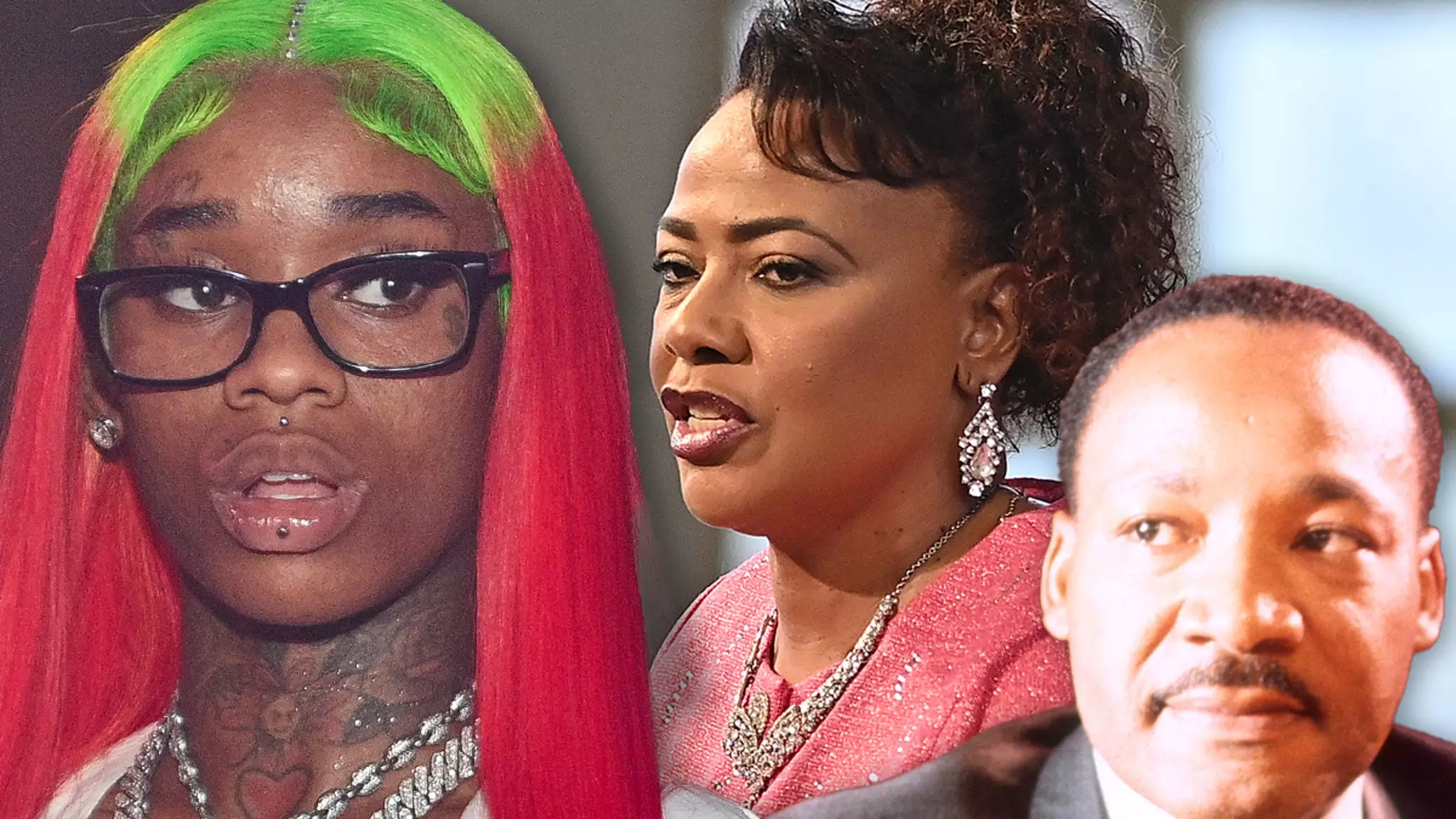In a modern digital landscape where social media platforms serve as both creative outlets and arenas for public discourse, the actions of artist Sexyy Red have ignited a contentious debate. The rapper recently made headlines by posting an AI-generated image of herself dancing with the late Martin Luther King Jr. to commemorate Martin Luther King Jr. Day. This attempt at homage, however, spiraled into a public relations crisis, revealing the fine line between admiration and appropriation in today’s cultural climate.
Many might question whether her intention was to celebrate or simply draw attention to herself. While the initial reception of her post garnered a significant number of likes—over 50,000—its impact was quickly overshadowed by the backlash that ensued. The provocative nature of her social media sharing, where she also showcased a photoshopped image of herself standing next to MLK during the historic 1963 March on Washington, was met with sharp criticism.
The backlash was led by Bernice King, the daughter of Martin Luther King Jr. and Coretta Scott King. Her response illuminated the problem with mixing historic reverence with contemporary celebrity culture. Describing Sexyy Red’s actions as “intentionally distasteful, dishonoring, deplorable, and disrespectful,” she articulated a sentiment shared by many who felt that the rapper’s portrayal trivialized the legacy of a crucial civil rights leader. Bernice pointed out the profound impact MLK had in fighting for civil and human rights, asserting that he was “assassinated for working for your civil and human rights and to end war and poverty.”
This powerful response highlights a critical issue: the responsibility that comes with creating and sharing content that involves historical figures. In many ways, Bernice’s reaction serves as a reminder that while artistic expression is vital, it should not come at the expense of respect for individuals who shaped the very society we live in today.
The fallout from this incident illustrates a broader need for cultural sensitivity in today’s social media-driven world. It raises questions about how artists engage with significant historical narratives. Is it permissible for celebrities to use the experiences and images of historical figures for their own gain, even if the intent is to pay tribute? The answer lies in the nuance of intention versus impact.
While some users, such as rapper Blueface’s mother, suggested that Bernice King should extend an apology to Sexyy Red, these viewpoints miss the larger discussion surrounding accountability in cultural expressions. The apology should not solely fall on Bernice, but rather it is an opportunity for Sexyy Red, as an artist, to reflect on her approach to representation and historical context.
Ultimately, the uproar surrounding Sexyy Red’s posts serves as a teachable moment about the importance of honoring the legacies of those who came before us. In an age where digital expression is amplified, sensitivity and understanding remain paramount to ensure that our tributes do not become distractions or, worse, distortions of history.

